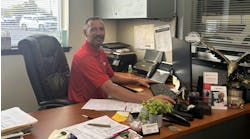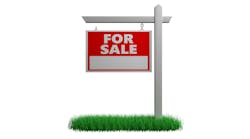I get the opportunity to meet and talk with shop owners and technicians in the United States and around the world, and for the majority of us one thing is for sure — we need to improve our business knowledge and how we operate. But most just don't know how or where to get help.
Just because a technician working on vehicles every day carries the additional title of Shop Foreman, Manager or Owner, doesn't mean that person can stop learning how to do things better. Even if we haven't graduated from college or high school, it doesn't give us the excuse to not learn how to analyze our financial position, improve production flow, establish standard operating procedures or improve our market position. These critical elements of business are for many operations worldwide engrained in the culture and vision of the company — whereas others don't see the need or value of them.
I have been a follower of Michael Gerber's E-Myth Mastery for many years, and if you haven't already, I highly suggest you get a copy of the E-Myth Revisited ... Why Most Small Businesses Don't Work and What to Do About It, either in book or audio. Take the brief time it requires out of your busy schedule working daily in your business to listen to the message. It simply cuts to the bone for many industries like ours about why we struggle at business improvement, sustainable growth and success.
To begin with, you must learn to make time to work on your business and not in your business. Understanding this difference is hard for many, but it's extremely vital to grasp the concept. This first step will begin to move you onto the path of constant improvement and business growth. I have worked with many clients worldwide and when this simple concept clicks, it is one of the greatest milestones the business (and the owner) can ever have. With all that becomes possible for the business, it's a shame that such a small percentage ever achieves this milestone.
So what is holding us back? In most cases it's ourselves, with the fear of failure, the unknown, and/or at times the simple little barrier of pride. At body shops with annual revenues below $1.5 million (about 90 percent of all shops in North America), the owners are "Superman" or "Chief Fireman" in their organizations. Even some owners of shops with higher sales have this owner's position. At this point the owner is at a breaking point to stay abreast of daily issues. For many this process to learn to get better control of their business was out of necessity to stay alive, while others took the right steps to learn and improve their business before it was out of control. At what stage are you?
There's no reason why those who take the time to read trade publications cannot better prepare themselves for the changes to come. Other than reading a book, how can anyone get better at running a business? You have to learn it — no one is born with the knowledge. Yes, some develop faster and seem to be better at it than others, but it's all a learning process.
There are hundreds of regular classroom courses offered by companies specific to our industry and others that provide value even from outside our industry. There are also programs offered through your paint vendors and jobbers, and there are several hundred programs offered through the Automotive Management Institute (AMI) as well. Check out www.amionline.org for these offerings, go to our Web site at www.aeii.net, and/or contact your paint vendor. In any event, follow Nike's slogan and "Just Do It!" Never stop learning.
Another very valuable part of the learning process is to get involved with other shop owners locally and nationally through trade associations, the Collision Industry Conference (CIC), and get involved in business improvement groups commonly called 20 groups. These opportunities allow you to see that the same challenges you face are commonly shared by others. Plus, many in the groups have solutions or just the support to get it done.
I believe from observation and active involvement in this industry that the key solutions today evolve around main focus areas — the customer and getting control of the process and costs of doing business. We have to focus centrally on the customer, but is the customer the vehicle owner or the insurer?
To many the customer is the vehicle owner and I would not attempt to debate you otherwise. Others believe it is both the vehicle owner and the insurer. Again, I would not dream of changing your belief, but it's very hard to serve two masters. And finally, there are those that base their focus solely on the insurer. In this business model I still won't try to change your beliefs — this is in your opinion a better mousetrap.
The second focus item is most often misunderstood and often approached incorrectly. I often see shop owners cutting costs by using a "cheaper" clear, tape, paper, filler, etc. I see shop owners reduce benefits, maintenance, marketing and training when they are absolutely necessary to get them to their desired potential. Even though you should ensure you are buying right, it doesn't mean to buy cheap.
The most significant improvement to the costs of doing business is in improving process and the reduction of waste. But this too takes learning how to do it, a commitment to do it, and the involvement of your greatest resource — your staff. You can't do this all alone.
I have met so many shop owners in the last year who are tired and ready to give up. Many are simply closing their doors and no longer have the spark inside to see the opportunities through the challenges. The changes that have come about the last several years are an evolution of the business we have grown up in. The opportunities are still there, but we often hold on to the past longer than we should. This hinders progress and wears us out.
Those who are looking at the opportunities and not the old days seem to be filled with new energy and excitement. They are also quicker to prepare themselves and take advantage of the changes that will occur, with or without us. They improve their business the old-fashioned way — they learn it!
Please send your comments, questions and potential discussion topics you would like to see addressed in future columns to [email protected] . For additional information you can also visit www.aeii.net.




